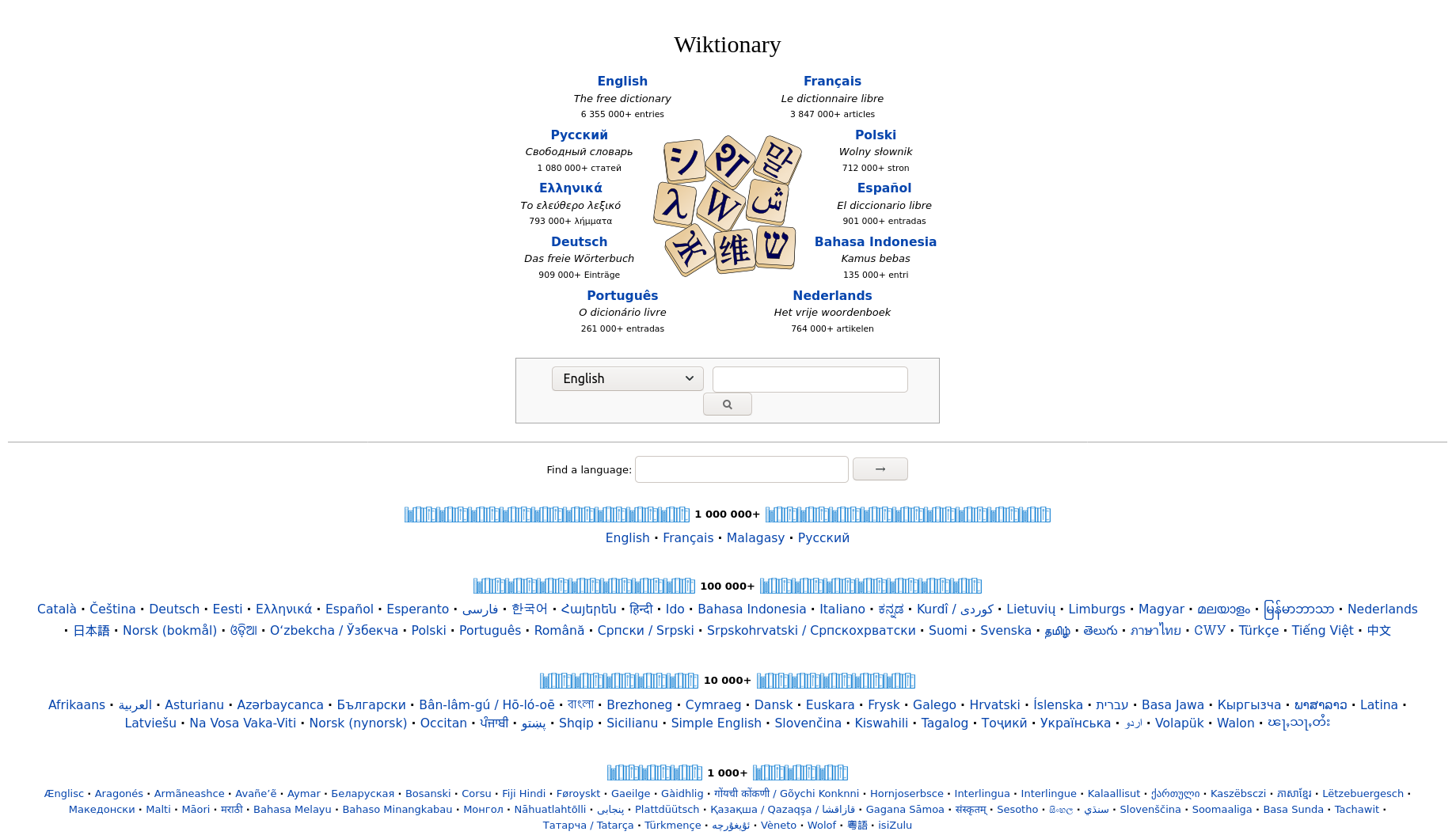Wiktionary


Wiktionary is a multilingual, web-based project to create a free content dictionary of terms (including words, phrases, proverbs, etc.) in all natural languages and in a number of artificial languages. These entries may contain definitions, pronunciation guides, inflections, usage examples, related terms, and images for illustrations, among other features. It is collaboratively edited via a wiki. Its name is a portmanteau of the words wiki and dictionary. It is available in 171 languages and in Simple English. Like its sister project Wikipedia, Wiktionary is run by the Wikimedia Foundation, and is written collaboratively by volunteers, dubbed “Wiktionarians”. Its wiki software, MediaWiki, allows almost anyone with access to the website to create and edit entries. Because Wiktionary is not limited by print space considerations, most of Wiktionary’s language editions provide definitions and translations of words from many languages, and some editions offer additional informations typically found in thesauri. Wiktionary data is frequently used in various natural language processing tasks.
If you search for something in the wiktionary (like https://en.wiktionary.org/wiki/water), privacy badger will say there are no trackers and uBlock Origin will say there are no ads. Since you also don’t have to pay money or trade anything else, this dictionary is trade-free. Therefore I give 5/5 blocksʻO kēia papa kuhikuhi he hōʻuluʻulu o nā waiwai kūʻai ʻole a me nā lawelawe e kū nei ma ka honua i kēia mau lā. Manaʻo ʻia ka maikaʻi a i ʻole ka lawelawe ʻana me ke kālepa ʻole inā ʻaʻole ia e noi i kekahi mea (ʻaʻohe kālā, ʻaʻohe ʻikepili, ʻaʻohe nānā a me nā mea ʻē aʻe). ʻO kēia ke ʻano maʻemaʻe o ka manuahi a me ka ʻoiaʻiʻo loa. Inā ʻike ʻoe i nā waiwai a me ka lawelawe ʻole kālepa, hiki iā ʻoe ke hoʻouna iā lākouShow more